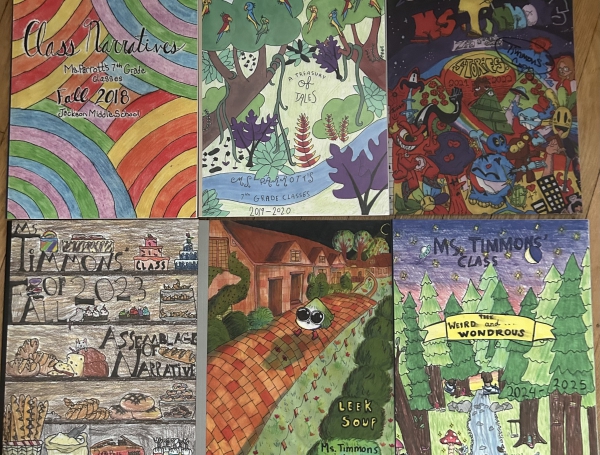

Reluctant Writers
February 20, 2017
This guest article is by Deb Lund, THI Instructor and was originally published at www.deblund.com.
This morning I saw a post on a writing-teacher group that read, “How do you help reluctant writers?” As my heartbeat raised and I sat up straighter in my chair, I knew I had to respond. I didn’t stop writing the response until I was forced to stop because of reaching the maximum word count, but I still have much more to say. I could write a book on this topic, and yes, I’ve started one. But for now, let me just share what I wrote (with a couple of tweaks) in response to the question on helping reluctant writers…
When I taught writing, I loved it when parents would walk into my classroom at the beginning of a school year and say their child was a reluctant writer. I knew I would get that child writing. After I moved across the country, a former teacher friend sent me a newspaper article called “Who’s Your Hero?” In it, the author, a past student of mine, talked about how her whole class knew they were writers. Also in that class was a writer who is now a national NBC news reporter. If you read his bio, you’ll see that it was in my classroom that he decided to be a writer. As an author, I know I’m easier to locate, so I get to hear more of these comments than other writers, and I accept the praise on behalf of all writing teachers who care enough about their students to do the hard work of nurturing lifelong writers.
Helping your students become lifelong writers means focusing on a lot more than writing conventions and formulas such as 5-paragraph essays. Best practices in teaching writing include student topic choice, choice of formats, critique opportunities, and realistic deadlines that incorporate opportunities for revision support. It means giving students a purpose for their writing, to make it meaningful for them. Meaningful enough that it will become a natural means of communication for them.
To help kids trigger their own passions for writing, they need models. Not just mentor texts, but live writing models. Writing can be such a scary, personally revealing activity, that it’s not only the students who are hesitant to reveal themselves on paper that have issues with writing, even in younger grades. They go for teacher recognition and approval over risk-taking and voice. Even the best writers in the class—no, especially the best writers in the class—can be guilty of this. Why take chances? They just follow the rules for the A and no more. When all that matters is teacher approval and grades, turning in a finished piece that is technically perfect and boring read won’t help students see their own potential as writers.
Imagine the difference experienced by students who have teachers who share their writing with them. Not just the finished paper, but the process. Use that smart board. Haul out the old overhead projector and write in front of students as they write. It’s motivating for them to see their teachers cross out lines, write in margins, question what to do next, make mistakes, add arrows to rearrange sections.
Can you tell I’m passionate about this topic?
I understand that to create writing standards and curriculum, we must break down what happens in the writing process and in our language itself. But that is not real writing, and to never give kids a chance to experience the magic in a successful free-write, based on their own passions, is to discourage them from learning to love writing. Trigger their emotions and beliefs, as you’ve triggered mine in your question, and let them fully express themselves. Without that component, it’s like teaching phonics and never applying the learning to the process of reading. You can’t become a writer in isolation of the real writing process.
Assigning meaningless writing and then pointing out errors makes no sense to me. If you’re still using a red pen and thinking you’re “teaching” on the paper, there’s a good chance your students see it only as criticism, as proof that they’re not and never will be good writers. Make sure they understand your motives. And make sure they know that even published authors go through the same steps they do, the same wondering, the same not-knowing what the piece will be when they begin it.
No one expects students to learn math by teachers redoing the math problems for them, but that’s the strategy used by many writing teachers. Take the time to talk with them, to ask questions, to be their writing coach. It’s not as hard as you might think.
It takes time to counteract what our students have learned about writing and to trust that we can help them take ownership and pride in their work. At the beginning of each new school year, it would take at least a few weeks for my new classrooms of students to get used to my philosophy and ways of teaching writing, but oh, my, what writers I would have by the end of the school year. If you aren’t feeling the same way with your teaching, take the risks you need to take to make it happen. You and your students will both benefit.
Yes, I know. It’s all about tests, all about measuring up. Who are you teaching for? You or your students? Do the work, provide the structure, the foundation that will allow your students to stand on their own, to take leaps, to soar.
 Deb Lund is a bestselling children’s author, a creativity coach who partners with those who want more joy and meaning in their lives, and a past classroom and music teacher, teacher-librarian, and founding director of an arts-based school. Deb is a popular presenter at schools, libraries, and conferences. Her master’s project focused on teaching writing, and for the past few decades, she has taught teachers, students, and writers of all ages. Deb is especially passionate about supporting those who share her commitment to getting kids reading and writing. Learn more about Deb at www.deblund.com
Deb Lund is a bestselling children’s author, a creativity coach who partners with those who want more joy and meaning in their lives, and a past classroom and music teacher, teacher-librarian, and founding director of an arts-based school. Deb is a popular presenter at schools, libraries, and conferences. Her master’s project focused on teaching writing, and for the past few decades, she has taught teachers, students, and writers of all ages. Deb is especially passionate about supporting those who share her commitment to getting kids reading and writing. Learn more about Deb at www.deblund.com
For the month of February, 2017, Deb's course: Writing with Kids, Writing with Real Results is our featured course. Learn more here. Register for this course for credit by February 28th for the same price as clock hours.




